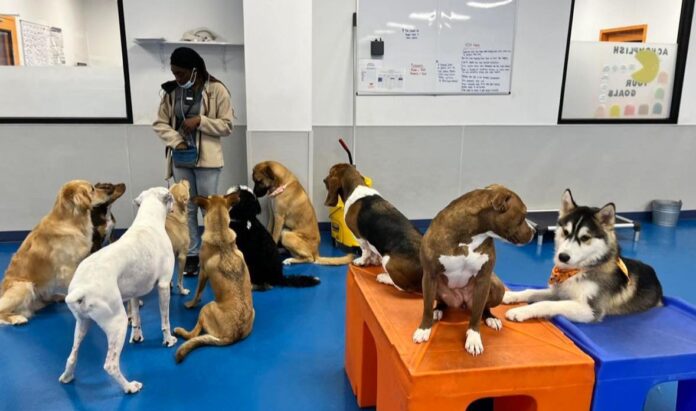Raising a puppy comes with many joys and responsibilities, and one of the most critical aspects of early development is proper socialization. Puppies, like children, learn essential behavioral and social skills during their formative months. Ensuring they interact safely with other dogs, people, and environments can significantly impact their future temperament and overall well-being. One of the most effective ways to achieve this is through a structured puppy daycare program.
Early Socialization Opportunities
A professional puppy daycare provides a safe and controlled environment where young dogs can interact with other puppies and adult dogs. These interactions help puppies learn proper social cues, such as understanding bite inhibition, reading body language, and responding appropriately to other dogs’ behavior. Early exposure to diverse experiences prevents fear-based behaviors and promotes confidence in unfamiliar situations. By observing and engaging with a variety of dogs, puppies develop social skills that are difficult to replicate in a home environment alone.
Structured Play and Exercise
Physical activity is a cornerstone of healthy puppy development. Puppy daycare centers offer structured play sessions that provide not only fun but also essential physical and mental stimulation. Playtime in a supervised setting helps puppies build muscle strength, coordination, and endurance while learning boundaries and self-control. Experienced staff carefully monitor interactions to prevent overstimulation or conflict, ensuring that every puppy benefits from balanced exercise. Regular physical activity also supports cognitive growth, as puppies process new experiences and challenges during play.
Positive Reinforcement and Training Support
Many reputable puppy daycare facilities incorporate basic training principles into daily routines. Using positive reinforcement techniques, staff can teach puppies fundamental commands such as sit, stay, and come, as well as reinforce appropriate social behaviors. Early exposure to training in a daycare setting helps puppies understand expectations and establishes a foundation for obedience and good manners. This structured learning environment complements the training efforts that owners continue at home, creating consistency in behavior development.
Exposure to Varied Environments
A well-designed puppy daycare program introduces young dogs to a range of stimuli and environments in a controlled manner. This exposure may include different surfaces, toys, sounds, and social interactions with both humans and other animals. Early and positive encounters with new experiences reduce anxiety and fear-related behaviors later in life. Puppies who regularly experience controlled novelty tend to be more adaptable, confident, and well-adjusted as adults.
Emotional and Mental Well-being
Puppies are naturally curious and energetic, and without proper outlets, they can develop destructive behaviors or experience stress. Puppy daycare provides mental stimulation through interactive toys, puzzle feeders, and structured group activities. Engaging in these activities keeps their minds active, reduces boredom, and helps them develop problem-solving skills. The emotional enrichment provided in daycare supports overall well-being, helping puppies grow into balanced and emotionally resilient dogs.
Supervised Interaction with Humans
In addition to canine socialization, interaction with humans is a critical component of early development. Staff at puppy daycare centers ensure that puppies are exposed to gentle handling, grooming, and routine care procedures. Positive interactions with humans in a structured setting teach puppies to trust people, reducing the likelihood of fear or aggression toward unfamiliar individuals. These experiences also strengthen the bond between puppies and their owners, as they learn to respond calmly and confidently to human presence.
Routine and Structure
Consistency is vital for young puppies. Puppy daycare provides a predictable daily routine, which helps dogs understand expectations and feel secure. Scheduled feeding times, play sessions, and rest periods teach puppies important life skills and encourage good habits. A structured environment also makes the transition to home life smoother, as puppies are accustomed to routines that promote discipline, calmness, and positive social behaviors.
Choosing the Right Puppy Daycare
Not all daycare centers are created equal, and choosing the right facility is essential for maximizing benefits. Look for a centre with experienced staff, clean and safe facilities, supervised play sessions, and a focus on positive reinforcement. Facilities should offer age-appropriate programs and maintain small group sizes to prevent stress or conflict. Visiting the centre and observing interactions can help ensure that the environment aligns with your puppy’s needs and temperament.
Conclusion
Puppy daycare plays a crucial role in supporting early socialization, emotional growth, and behavioral development. Through structured play, positive human and canine interactions, exposure to new environments, and consistent routines, puppies develop the confidence, social skills, and mental resilience necessary for a happy, well-adjusted life. By investing in quality puppy daycare, owners provide their young companions with the foundation for lifelong health, well-being, and harmonious relationships with both humans and other dogs.

